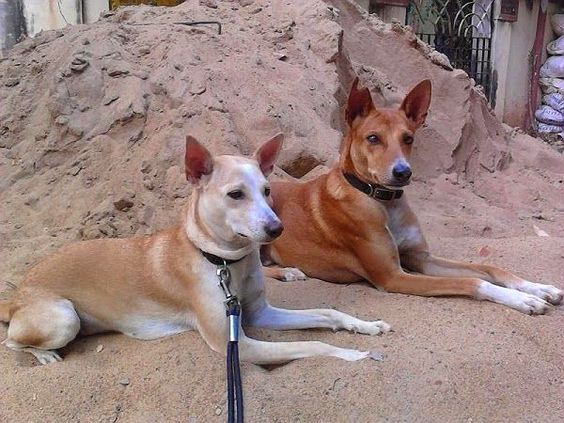
By Nishma Singhal, Founder of Zoivane Pets
Ever since the country has turned urban fast, so has the relationship between people with their pets. The cities have begun to be crowded, and the middle class is in an incessant expansion, all of which has contributed to a surging tide of pets in the lives of city dwellers: especially so for millennials and young professionals. Much as taken up with heart-mending ties between humans and pets, issues most under-discussed emerge out of this bond: namely, the demand for pet welfare and a more profound understanding of animal rights. I am the founder of a pet welfare products company and an advocate for animal welfare, and I feel the most compelled to address the challenges facing urban pet owners in India and the big policy and awareness gaps on pet care and animal rights.
Pet ownership in Urban India is changing
After examining the years gone by, it is believed that pet-ownership in urban India has undergone a vast change. Where earlier pets were thought to be mere companions, the bond has intensified into a much stronger emotional one. Dogs, cats, and even exotic animals are not only treated as pets; they have become family members, and any consideration for them-health, comfort, and contentment-have begun to take priority over their owners’ necessities. As disposable incomes rise and the pace of life quickens, pets are often thought to provide emotional support, comfort, and joy in increasingly busy lives. (Dogs, cats, and even exotic animals are not only treated as pets; they have become cherished family members, filling our lives with unconditional love and endless joy. We adore their silly antics, cozy cuddles, and the way they wag, purr, or hop into our hearts every single day. Any consideration for their health, comfort, and contentment naturally takes priority, often above our own needs because, let’s face it, they are our babies. With rising disposable incomes and the quickening pace of life, pets are not just companions—they are our emotional anchors, always there with comforting snuggles, happy tails, and a world of love when we need it most. We truly love them with all our hearts, and they make our family complete! 🐾❤️)
Finding particular challenges only for urban pet owners such as those living in metropolitan cities have very limited living spaces; there is much pollution, bad infrastructural development, increasing traffic blockage, and so forth. City residents tend to live in high-rise buildings with no yards or green spaces, making pet exercises cumbersome if not impossible. Further, the scantiness of parks and recreational facilities, which allow pets to socialize with their owner’s counterparts, continues to hamper their wellness.
By initiating the welfare schemes for pets
Being a pet welfare product manufacturing company, we are well aware of the gaps in our present-day market when it comes to pet welfare. It sells not only toys or food but also actually better solutions for pets to live indoors with more efficiency. This includes, for example, the development of movement products to support improved outdoor access, such as eco-friendly walking accessories and ergonomic pet carrier systems and multi-functional pet furniture based on smaller homes. Such solutions are not enough, however, if the owner lacks any education about responsible pet care, animal rights or the responsibilities that go along with having a pet.
Demystifying Animal Rights in Urban India
While the Prevention of Cruelty to Animals or PCA is a law in India, there is little awareness about animal rights in the country as yet. That act has generally not been followed to its full capacity and is under-implemented in practice. In cities, it gets worse as very few pet-friendly provisions exist either with relation to housing or transport, or even public spaces. The hurdle to it is not merely on the function of compliance but development of that sensitive, respectful, and responsible habit of existence with animals. The people who advocate for animal welfare must also be pushed to campaign for policy reforms that are directed toward the specific conditions that urban pet ownership presents. Such policies would include promoting a pet-friendly urban infrastructure, including dog parks, pet-friendly forms of transport, and accommodation. Therefore, more public awareness campaigns should be focused on animal rights, responsible pet ownership, and the merits of spaying/neutering. Hence, we will have very lovely and enlightened urban spaces in which pets will enjoy welfare priority.
The Way Forward
There is a need for a multi-dimensional approach to meet the demand for urban pet welfare in India. As a company manufacturing pet products, we need to consistently innovate solutions to urban pet ownership problems, while also educating pet owners about responsible pet ownership, animal-rights, and mental and physical well-being in pets. Collaboration across animal rights organizations, local government bodies, and pet care professionals is also another area of concern, as there must be adequate policy and infrastructure development for pets and their owners. Pet businesses should therefore also invest in the making of sustainable, eco-friendly products that promote healthier lifestyles for pets and resolving some urban environmental problems. Indeed, pet welfare concerns in urban India extend beyond the care and consideration of the animals themselves to a common collective consciousness around treating pets as valued members of the society. With concerted efforts by all stakeholders, I believe we will create a future in which pets and people happily dwell side by side amidst the constantly changing urban landscape of India.



